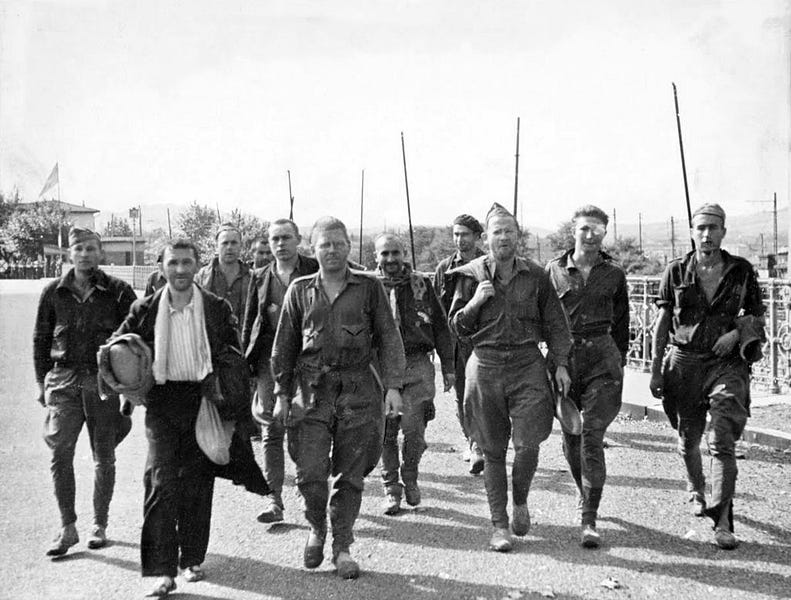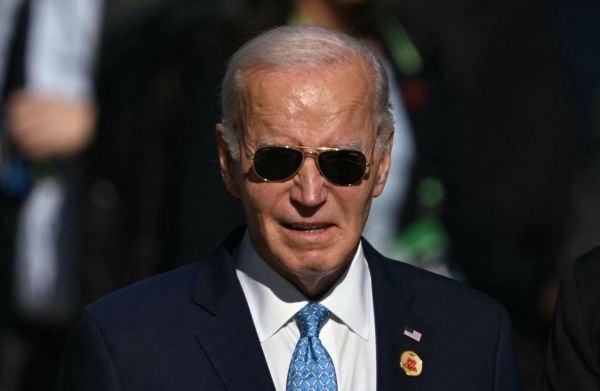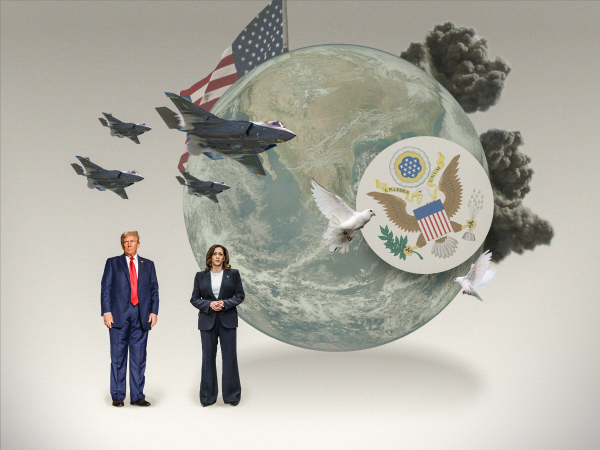Last week, President Joe Biden posthumously awarded John McCain a Presidential Medal of Freedom, citing his service in Vietnam and long political career. But with the war in Ukraine settling into a brutal war of attrition, there is a forgotten John McCain op-ed that deserves our attention more than his Medal of Freedom.
When he was running for re-election to the Senate in 2016, McCain wrote a piece that he had to know in advance would be hard to swallow for Arizona voters. They had, after all, first elected him to the Senate in 1986 as the successor to conservative icon Barry Goldwater. McCain’s op-ed, which appeared in The New York Times, was a salute to Delmer Berg, who at his death a month earlier was thought to be the last living American to fight on the Loyalist side in the Spanish Civil War of 1936-39.
Berg’s left-wing politics (he was a Communist most of his life) were not McCain’s, as he made clear in his essay. His tribute to Berg was based on his admiration for the “courage and sacrifice” Berg showed defending a cause he believed in.
What makes McCain’s forgotten essay particularly timely today is the news of American volunteers fighting with Ukrainian forces in that country’s battle with Russia. We know little about the vets (at least two of whom have been captured), but we can imagine the courage it took for them to go into a war zone and fight alongside men they had never known before.
The American volunteers in Spain, who formed the Abraham Lincoln Brigade, went in response to the coup against the elected Spanish Popular Front government by Fascist forces led by General Francisco Franco. (They were on the “wrong side,” President Ronald Reagan would say years later.) With aid supplied by Nazi Germany and Mussolini’s Italy, the Fascists had a distinct military advantage over the Loyalists the American volunteers were supporting.
Ernest Hemingway, who would report on Spain’s civil war for the North American Newspaper Alliance and later fictionalize the war in his novel For Whom the Bell Tolls, saw the battle between the Fascists and Loyalists as “the dress rehearsal for the inevitable European war.” Hemingway was prescient, and when on May 1, 1937, President Franklin Roosevelt signed an extension of the Neutrality Act of 1935, the Loyalists were deprived of any help they might have gotten from the United States. The small amount of military aid the Loyalists got from the Soviet Union did not begin to match that of Germany and Italy to the Fascists.
The Biden administration has not remained neutral in Ukraine the way the Roosevelt administration did in Spain. Biden in this respect is very different from FDR, who in a 1939 Cabinet meeting admitted that the embargo on arms to Spain was a “grave mistake.” But the question that remains unsettled is: Will America continue to help Ukraine if the war there drags on and energy prices continue to rise as a result of our boycott of Russian oil, liquefied gas, and coal?
The dress rehearsal for the inevitable European war that Hemingway saw in Spain has its parallel in Ukraine today. The war being fought now is a test of whether in modern Europe a nuclear power can do as it wishes with a non-nuclear power so long as that power has no nuclear ally to defend it.
The long-term consequence of the Fascists’ victory in the Spanish Civil War was 36 years of Franco’s brutal dictatorship, which ended only with his death in 1975. Germany’s payoff was that in World War II it got the use of Spanish ports from which it could fuel submarines used to attack Allied ships in the North Atlantic.
The long-term consequences of a total Russian victory in Ukraine are potentially worse than 36 years of dictatorship given Russian President Vladimir Putin’s belief that Ukraine has no right to exist as an independent nation and his assault on Ukraine’s cultural identity. There is no reason to think that Putin and his successors would in time give Ukraine back its freedom since they deem it part of greater Russia.
Exactly what John McCain, an outspoken supporter of an independent Ukraine, would say about America’s current military tactics in Ukraine is impossible to know. But certainly he would encourage us to be resolute. If his 2016 op-ed is a guide, he would tell us to act on our ideals.
At the end of his essay McCain talks about how Ernest Hemingway’s For Whom the Bell Tolls—the story of an American volunteer fighting and dying in Spain—has been his favorite book since he was 12. Then he turns to the John Donne poem from which Hemingway took his book title. “Each man’s death diminishes me. For I am involved in mankind. Therefore, send not to know for whom the bell tolls. It tolls for thee,” are the lines McCain cites in closing his defense of the Americans who went to fight in Spain.








Please note that we at The Dispatch hold ourselves, our work, and our commenters to a higher standard than other places on the internet. We welcome comments that foster genuine debate or discussion—including comments critical of us or our work—but responses that include ad hominem attacks on fellow Dispatch members or are intended to stoke fear and anger may be moderated.
You are currently using a limited time guest pass and do not have access to commenting. Consider subscribing to join the conversation.
With your membership, you only have the ability to comment on The Morning Dispatch articles. Consider upgrading to join the conversation everywhere.